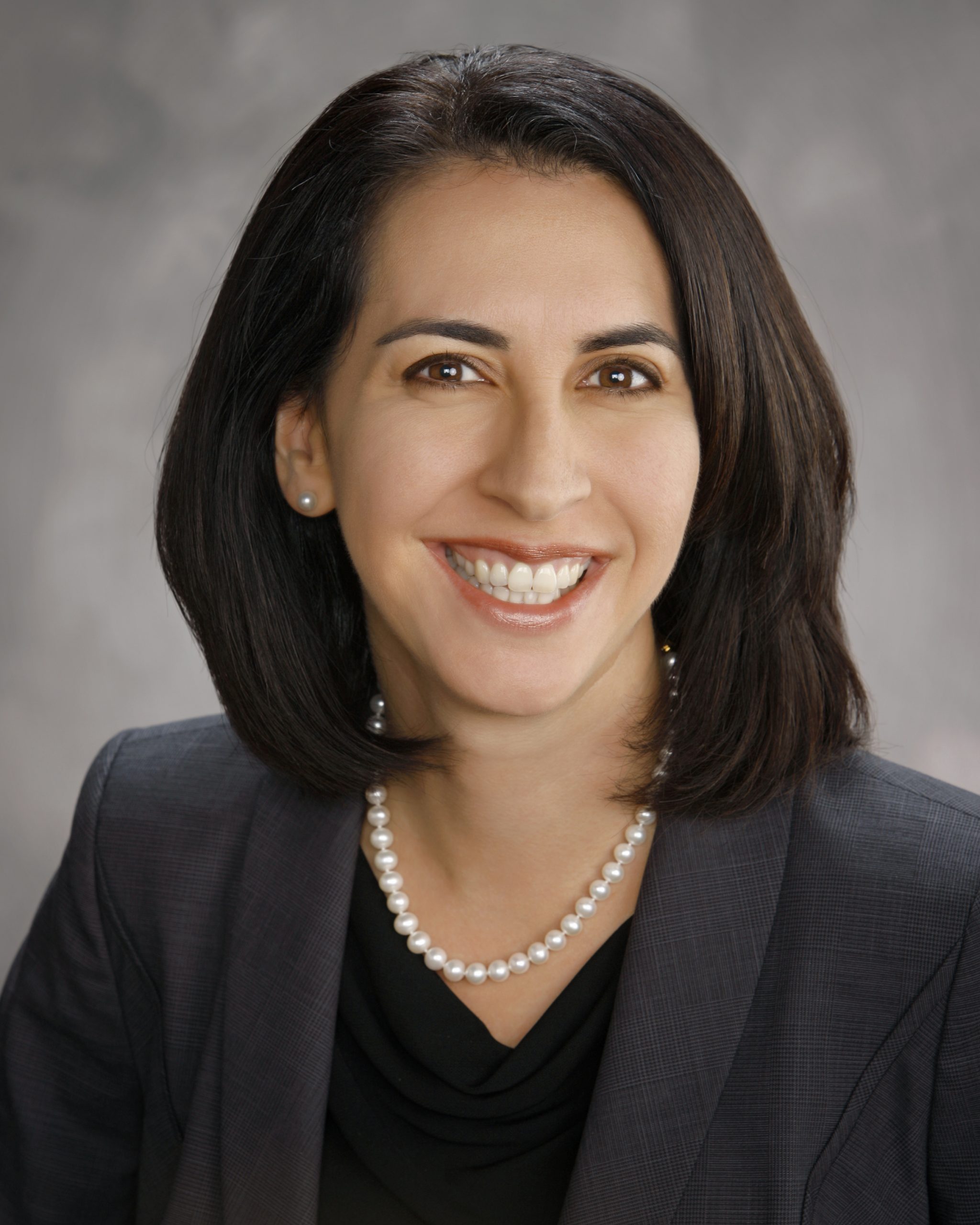LIVERMORE, Calif.— The Hispanic Engineer National Achievement Awards Corp. (HENAAC) recently named Sandia National Laboratories’ Katherine Guzman one of its 2013 Luminary honorees. She received her award Oct. 5 at the 25th Anniversary HENAAC Conference in New Orleans.
“This is an incredible honor,” said Guzman. “I remember going to the HENAAC awards ceremony as an undergraduate and looking up at the award winners with awe, never imagining that one day I might be considered for such an award.”
Luminary honorees represent professionals in science, technology, engineering, and mathematics who initiate, collaborate, and lead key programs and research in their organizations. These individuals have made significant contributions to the Hispanic technical community as leaders and role models.
“Katherine truly embodies our core values,” said Todd West, one of Guzman’s managers at Sandia. “She consistently executes and leads high-quality work in the face of sometimes challenging and ambiguous environments. She manages effective teams and fosters an attitude of mutual respect. Her outreach activities are equally exemplary. In short, Katherine is an ideal role model for others considering a career in science, technology, engineering or math.”
New tools, service and science
At Sandia, Guzman has distinguished herself with her work in the area of risk management. She played a key role in the development of SUMMIT (Standard Unified Modeling, Mapping, and Integration Toolkit), a new technology to enable emergency management personnel to seamlessly access information from diverse models and data coming from different sources. The creation of these tools is now enabling the Department of Homeland Security (DHS) to rigorously plan for and exercise against highly complex disaster scenarios.
Guzman now leads a Sandia effort to better understand risk for DHS, work that could shape the way the nation understands and attempts to mitigate homeland security risk.
Guzman said science was part of her upbringing. “My father is a scientist and he raised me and my sisters the way he was raised — to ask a lot of questions,” she said “He spent a lot of time explaining to us the how and why of everything.”
Her future in mechanical engineering became apparent at a young age. “I was always more interested in building furniture for my dolls than playing with the dolls themselves,” said Guzman. “Making things was what fascinated me.”
Guzman earned a B.S. at The University of Texas at Austin and a Ph.D. in mechanical engineering at the University of California, Berkeley. As both an undergraduate and graduate student, she found herself to be one of the few women and one of even fewer Hispanic women.
When it came time to consider where to begin her career, service was at the front of Guzman’s mind. “My father served in the Peace Corps and my mother is a social worker, so I was raised with a very keen sense of making a contribution to the world,” she said. “My dad is an agronomist and he felt that he, as part of a large community of scientists, was helping to solve world hunger through his work. That’s a pretty noble cause to go to work for every day. So coming to Sandia was a natural choice because our work has true national impact.”
Guzman is also driven by a personal passion to help minorities and women in science and engineering achieve their career dreams. As an undergraduate and graduate engineering student at two of the country’s largest and most prestigious universities, she encountered very few female and minority role models and virtually no female minority role models. That is something she hopes to change with her work as a leader, mentor and keynote speaker.
Outside of work, Guzman stays busy with her husband and two young sons. “Balancing work with family and community is important to me,” said Guzman. “I want to instill in my children the values I was raised with — hard work, the value of education, the importance of community and respect for everyone.”

